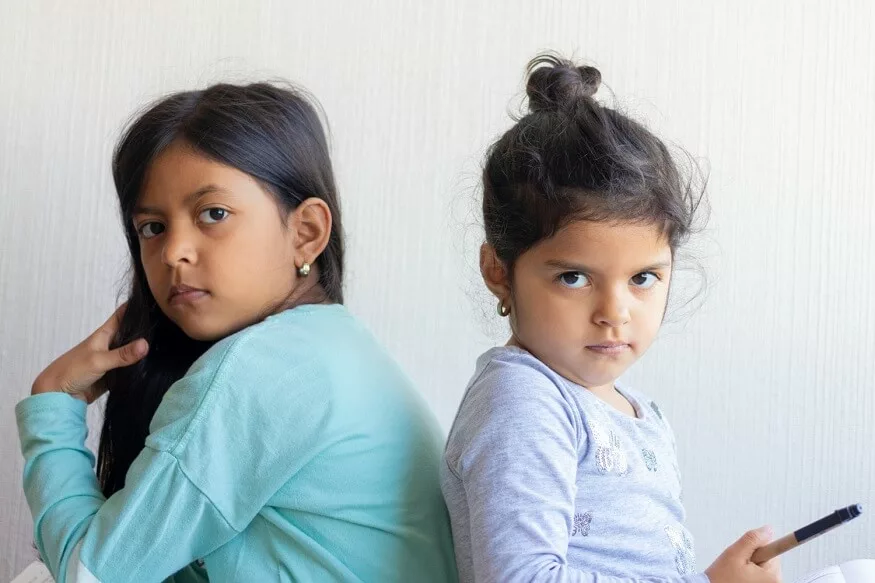It is a common goal held by parents everywhere to have a healthy and happy child. Parenting frequently starts with the desire and resolve to provide their child with the finest start in life possible. Watching your baby gasping for air can be a distressing experience for any parent. While occasional gasps during sleep are typical, persistent and frequent episodes can raise concerns.
We will examine the various aspects of babies gasping for air extensively, including its causes, symptoms, and practical solutions to lessen this worrisome problem. You may have the peace of mind that every parent wants and make a huge difference in your baby’s well-being by taking the necessary steps to better understand the underlying causes.
Also Read: When Can Baby Climb Stairs and How Can You Keep Them Safe
Causes of Baby Gasping
- Increased Adenoids or Tonsils: The adenoids and tonsils are part of the immune system and are situated in the throat. Sometimes they swell up or get inflamed, which makes the airway partially obstructed and results in sleep apnea caused in babies.
- Craniofacial Abnormalities: Some babies may have issues with their jaw or chin, which can make sleep apnea treatment worse. When these facial features are too small or not well-formed, they might narrow the airway and make breathing difficult during sleep.
- Premature Birth: Sleep apnea is more common in infants who are born too soon. This is because when they sleep, their brains might not be completely prepared to regulate their breathing.
- Obesity: Although it’s not common in babies, being overweight can contribute to sleep apnea. Extra weight can squeeze the airway, making it hard to breathe while sleeping.
- Neurological Disorders: Brain Palsy and Down syndrome are two neurological disorders that can increase a baby’s likelihood of developing causes of baby gasping. These conditions affect the muscles that help us breathe, causing interruptions in their breathing during sleep.
- Genetic Factors: Research indicates that sleep apnea may be influenced by heredity. The newborn can be more prone to sleep apnea or other sleep disorders.
- Health concerns: Sleep apnea could be more prevalent in infants with a background of certain health conditions, like heart or lung abnormalities. These ailments might impact their breathing, potentially leading to difficulties in their sleep patterns.
Also Read: Why Your Baby is Making Raspberry Sounds and What Advantages it Offers?
Symptoms of Baby Gasping
Sleep apnea in infants can present various indications. Seek out a thorough assessment from a paediatrician if you observe any of the symptoms listed above. Based on your child’s unique needs, a trained healthcare provider can conduct a complete assessment and provide appropriate counsel.
- Strange Breathing Habits: When they are asleep, infants with sleep apnea symptoms may have unusual breathing patterns. This could include shallow breathing episodes, apneas, or even bursts of rapid breathing interspersed with pauses in breathing.
- Noisy Breathing: Babies with sleep apnea symptoms might produce loud snoring, choking, or gasping sounds while they sleep. These sounds occur as the baby struggles to breathe and can be quite concerning for parents.
- Restless Sleep: Sleep apnea symptoms can cause babies to have restless sleep, characterised by frequent awakenings, tossing and turning, and difficulty staying asleep. They may appear fussy or agitated during sleep.
- Excessive Sweating: Babies experiencing sleep apnea episodes may sweat excessively during sleep, especially around the head and neck area.
- Difficulty Gaining Weight:If you notice that your baby is having difficulty gaining weight despite adequate feeding, it could be a potential sign of sleep apnea symptoms.
Also Read: The Ultimate Guide to High Chairs for Babies
Treating Sleep Apnea in Babies
Sleep apnea treatment in babies often demands a multifaceted approach, tailored to the underlying cause and the condition’s severity. Here are some prevalent methods employed to address sleep apnea in infants:
- Lifestyle Adjustments: Simple alterations like optimising sleeping positions, creating a serene sleep environment, and adhering to a consistent sleep routine can significantly mitigate sleep apnea symptoms.
- Medical Interventions: In certain cases, medical interventions become necessary. This can encompass the removal of enlarged tonsils or adenoids, which may obstruct the airway and contribute to treating sleep apnea. Surgical procedures might also be considered for specific craniofacial abnormalities.
- Continuous Positive Airway Pressure (CPAP): CPAP therapy involves a machine that gently delivers airflow through a mask covering the baby’s nose or mouth. This aids in keeping the airway open during sleep, preventing breathing pauses.
- Medications: Under specific circumstances, medications may be prescribed to manage underlying conditions that contribute to treating sleep apnea, such as reflux or allergies.
Also Read: When Do Babies Start Playing With Toys?
Ways to Reduce Baby Gasping
In conjunction with medical interventions, there are numerous steps parents can take to reduce baby gasping for air:
- Safe Sleeping Environment: Ensure that your baby’s crib or sleep area is free from potential hazards, including loose bedding, pillows, or stuffed animals that could obstruct the airway.
- Head Elevation: Placing a small, folded towel or blanket beneath the mattress’s head can gently elevate your baby’s head, facilitating better airflow.
- Optimal Room Conditions: Maintain a comfortable room temperature and humidity level where your baby sleeps to encourage smoother breathing.
- Regular Tummy Time: Encourage routine tummy time while your baby is awake to strengthen their neck and shoulder muscles, potentially enhancing their breathing during sleep.
- Benefits of Breastfeeding: Breastfeeding offers numerous advantages, including a potential reduction in the risk of sleep apnea. Therefore, if feasible, breastfeeding your child is highly recommended.
- Smoke-Free Environment: Creating a smoke-free environment is crucial to safeguarding your child from the negative effects of second-hand smoke, which can exacerbate respiratory conditions such as sleep apnea.
- Weight Monitoring: Observing your baby’s weight is necessary for reducing the likelihood of sleep apnea treatment. By ensuring that your child maintains a healthy weight, you can actively work towards minimising the risk of this condition.
Also Read: Tips to Help Parents Adjust to Baby’s Changes
Baby gasping for air can be an unsettling concern for parents. By grasping the root causes, identifying the symptoms, and implementing suitable measures in treating sleep apnea, you can significantly curtail the occurrence of gasping episodes in your baby. Seeking guidance from a healthcare professional for a precise diagnosis and a personalised treatment plan is essential. With the combination of attentive care, family support, and medical interventions, you can secure your baby’s respiratory health, offering them a tranquil and restful sleep environment and ensuring their overall well-being.
At EuroSchool, we understand the concern and worry that can arise when a baby is observed gasping for air during sleep. In order to properly address this issue, we think it’s critical to give parents knowledge and support. We have a holistic approach to education that incorporates promoting well-being since we recognize the significance of a baby’s health and restful sleep for their entire growth. Our goal is to educate parents about the signs, reasons, and techniques for minimising their infants’ gasping for air. We are committed to encouraging a culture of health and well-being and helping parents provide a safe and cosy resting environment for their infants.











